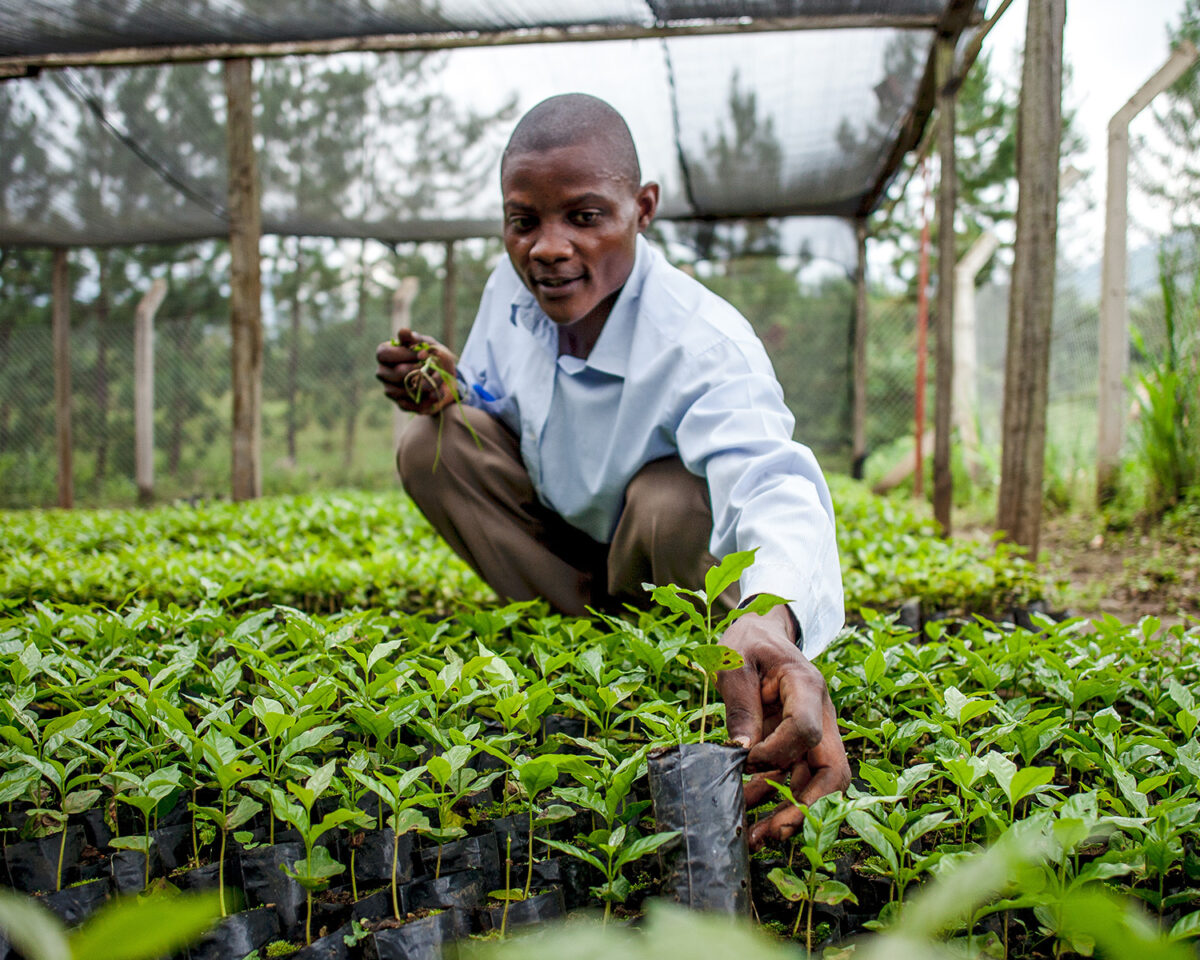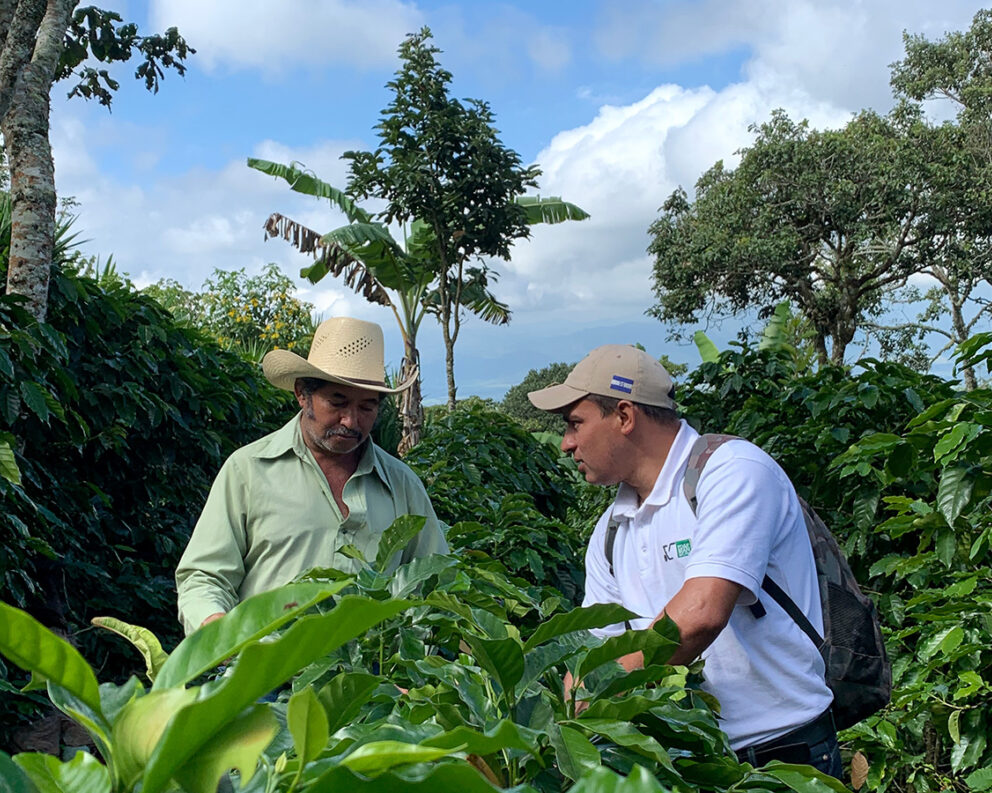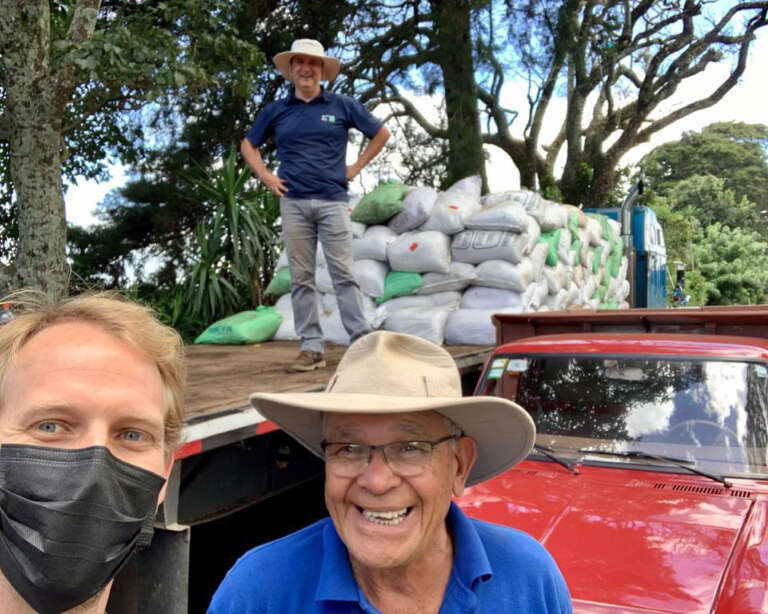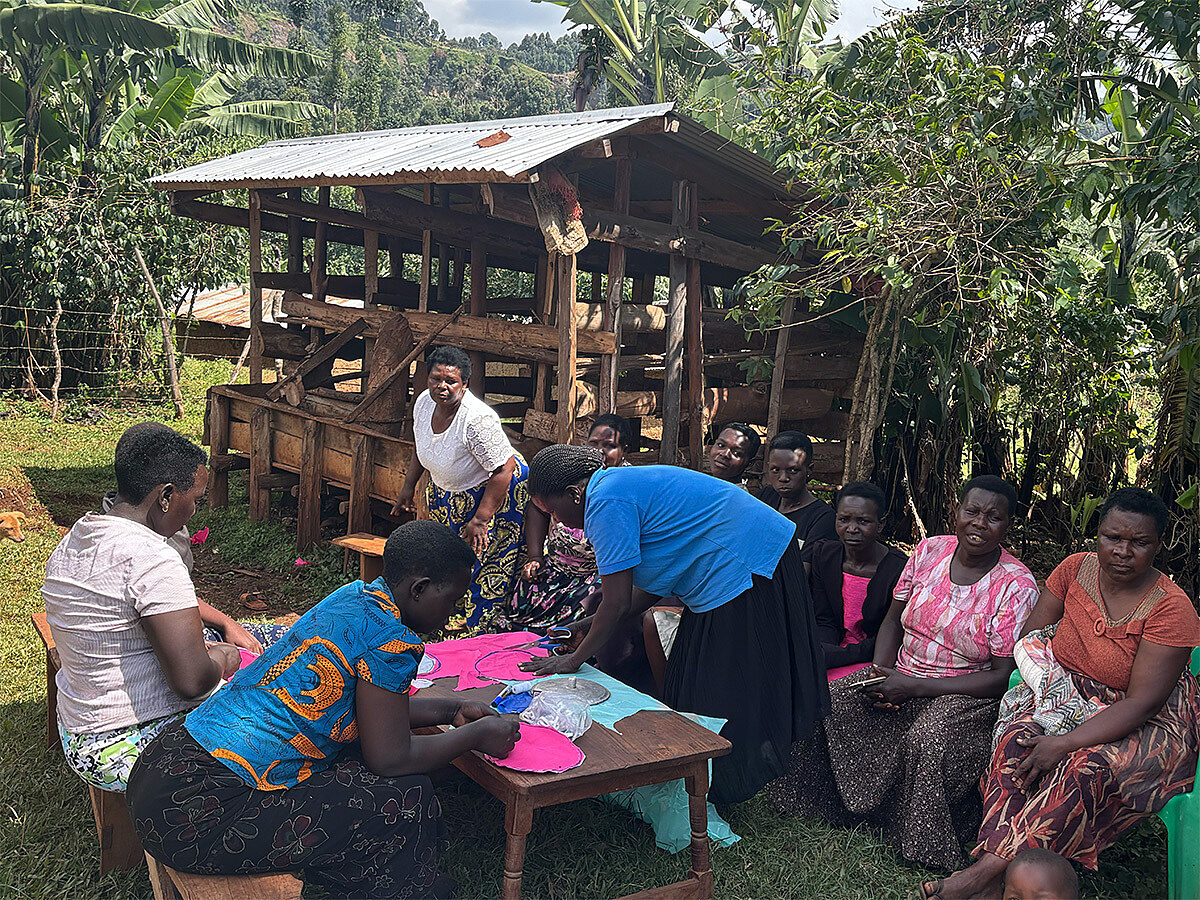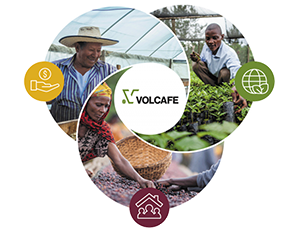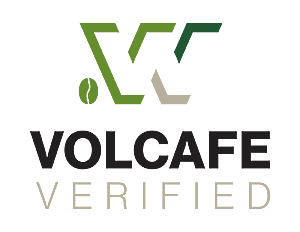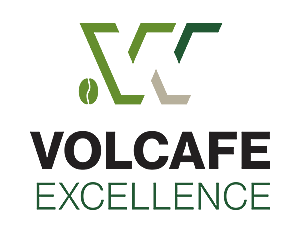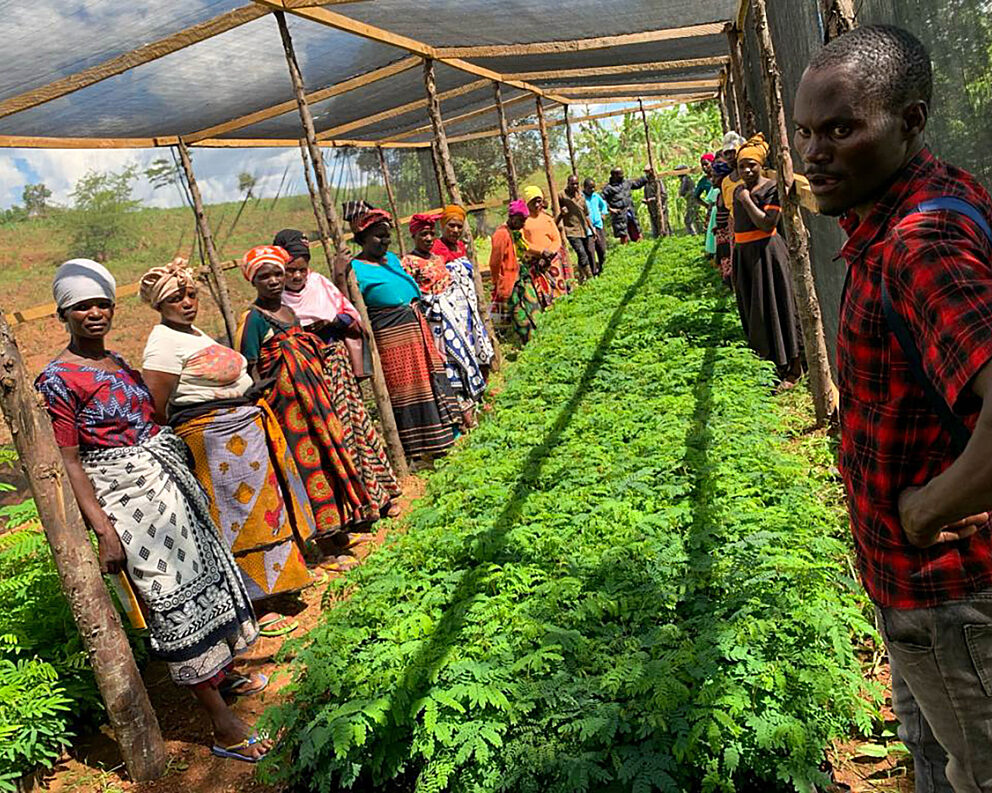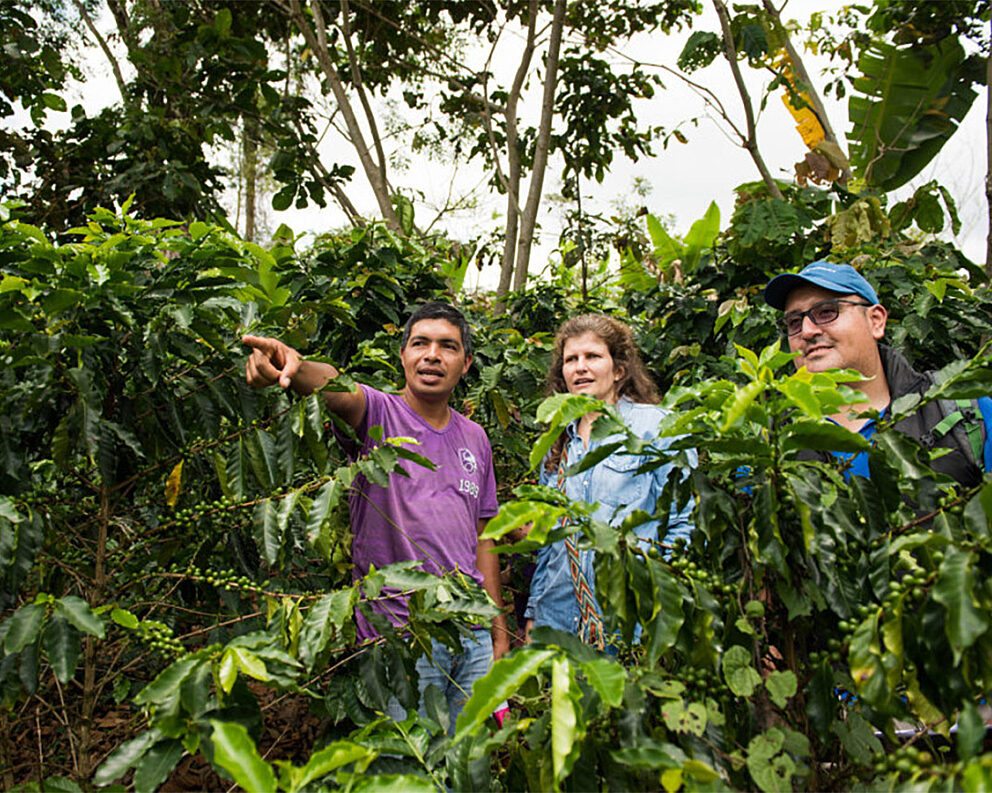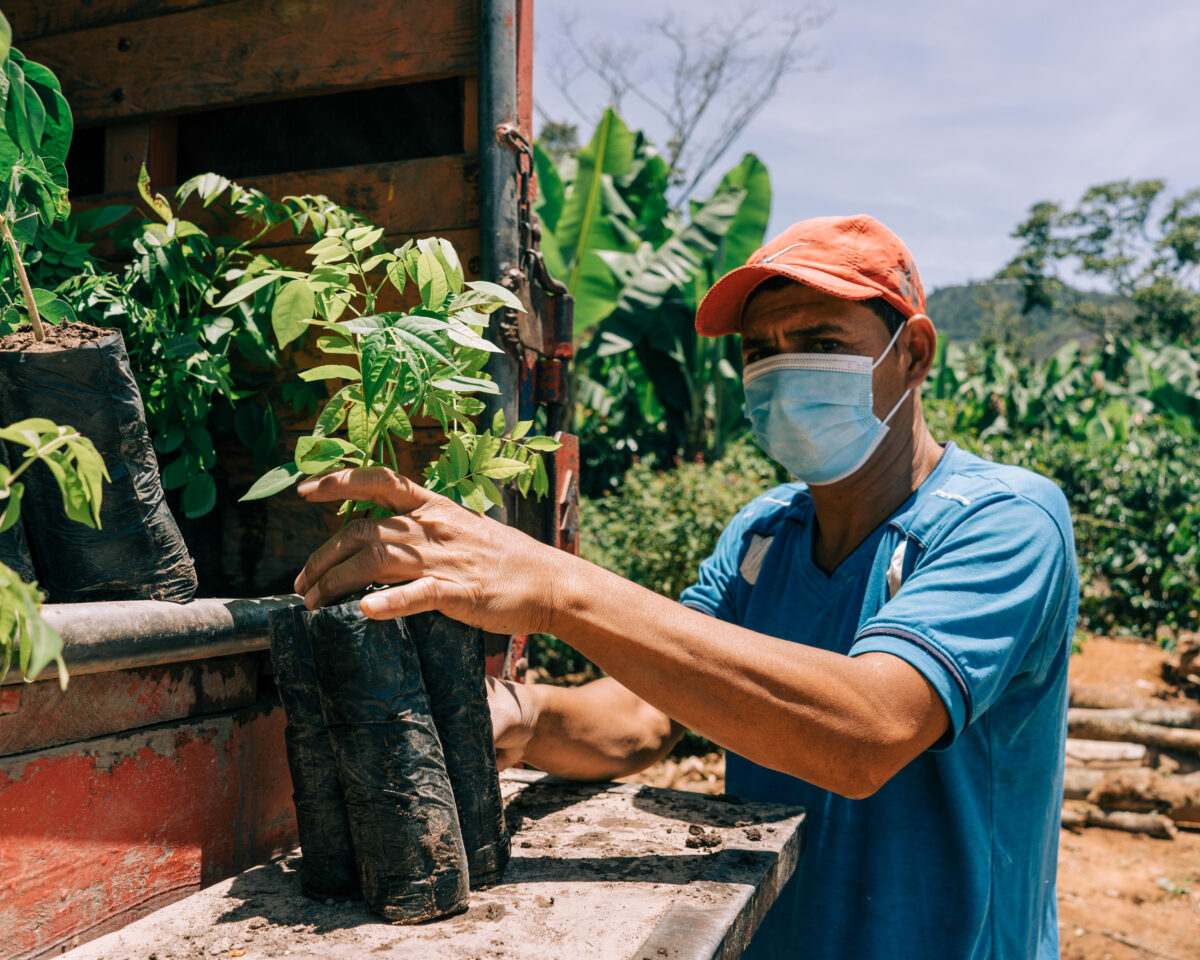Regenerative practices
Combat climate changeAs part of our Sustainability Strategy, Volcafe promotes regenerative practices that address the impact of climate change on coffee cultivation.
We are already working with partners to increase our understanding and to mitigate climate change risks in key coffee regions, including the effects of temperature fluctuations, flooding, droughts and frosts.
We want to do more and go further to find root-cause solutions to environmental issues that we can deliver in coffee origins to protect livelihoods and markets.
Volcafe understands that coffee's future is intrinsically linked to mitigating the effects of a changing climate. Coffee farmers are already seeing the impacts on their crops. At the same time, we know that coffee farms can be a model for regenerative agriculture, reducing the need for costly chemical inputs while safeguarding local ecology.
Addressing deforestation in coffee supply chains
Volcafe understands the impact that deforestation and forest degradation are having on biodiversity, the environment, rising greenhouse gas emissions, and global efforts to combat climate change. As a company that works in many countries where deforestation is a known risk, we take our responsibilities seriously.
Volcafe is committed to doing its part to prevent and address deforestation. One of the three pillars of our Sustainability Strategy focuses on promoting regenerative practices to combat climate change. Through our Volcafe Way farmer support programme and utilising our 250+ agronomist advisors, we carry out a range of projects in coffee origins that facilitate forest restoration and large-scale tree planting while preventing additional deforestation.
Volcafe also supports the drive toward 100% deforestation-free supply chains – we see deforestation as a threat not only to our business, but to the communities where we work as well as the health of the planet. Volcafe is on course to be fully compliant with the EU regulation on deforestation-free products (EUDR) by the end of 2026 (the new date for entry into application of the law). Our preparations include upgrades to internal systems and operating procedures, trials of additional systems for risk assessment and monitoring, and training of our farmer support teams on the enhanced practices.
Volcafe is deeply invested in responsible sourcing through our own Volcafe RS Standard as well as support for third-party certifications including 4C, Fairtrade, Organic, and Rainforest Alliance – these standards each include criteria to safeguard ecosystems including forests. As a member of the Global Coffee Platform (GCP) and part of the European Coffee Federation (ECF) Sustainability Committee, Volcafe seeks to align with other industry players to promote and share best practices.
This content is hidden due to your cookie settings. If you'd like to view this map, video, or graphic, please click the 'Cookies' tab at the lower right and activate the 'Functional' cookies.
Film credits: Nyokabi Kahura, Tobias Thiele (Creative Director) / Volcafe / Fairpicture
Partnerships
To strengthen our efforts on climate change and the promotion of regenerative practices, Volcafe has formed numerous partnerships. These include:
- CATIE: Volcafe began working with this Costa Rican research and training institute in March 2021 to develop a sustainable agroforestry programme for coffee farmers. Initially focussed on pilots in Costa Rica and Peru, in 2022 the partnership was expanded to include more origins in Africa, the Americas, and Asia-Pacific.
- Cool Farm Alliance: After a successful test run in Colombia, in 2022 Volcafe joined the Cool Farm Alliance in all 15 origin countries where we work. Through this partnership, Volcafe and the coffee farmers it works with are able to use the Cool Farm Tool, an online calculator that assesses the greenhouse gas, water, and biodiversity impacts of farming.
- dss+: Volcafe and dss+ worked together to devise and implement a global carbon accounting drive across Volcafe's 25+ origin and destination offices. Drawing on its experience with integrating climate action into business operations, dss+ supported Volcafe in developing aspects of a carbon reduction and removal plan.
- Zurich University of Applied Sciences (ZHAW): Volcafe partnered with researchers and scientists from the prestigious Zurich University of Applied Sciences (ZHAW) to develop a Life Cycle Assessment (LCA) tool for coffee, enabling us to better understand the 'cradle to grave' impact of coffee produced in different settings.
Related Impact Stories


